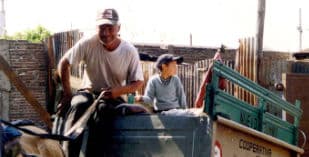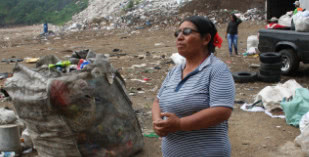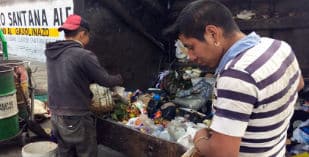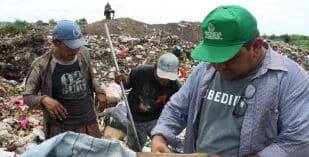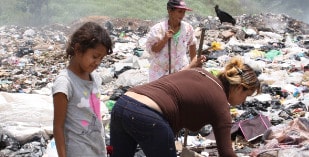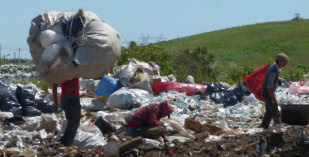ILO estimates indicate that close to 20 million people worldwide earn their living from recycling waste. Many work as waste pickers who gather and sort materials on landfills or open dumpsites, collect waste from garbage bags or containers in public spaces, and collect household waste. Waste pickers generate considerable environmental, economic and social benefits for the cities in which they work.
WIEGO’s Law and Organization and Representation programmes launched the “Protection of Human Rights of Waste Pickers in Latin America” project in 2017. This initiative, carried out in six Latin American countries, aimed at documenting the working conditions of waste pickers in the region from a human rights perspective and at seeking improvements for this occupational group through legal advocacy.
The study findings from each country were detailed in reports and, on the basis of these, a legal assessment was done on the systematic violation of human rights suffered by this occupational group in Latin America for engaging in informal recycling. The assessment was presented to the Special Rapporteurship on Economic, Social, Cultural and Environmental Rights of the Inter-American Commission on Human Rights (IACHR) in 2019 and sections of the document were included in the IACHR’s Annual Report 2019. This was the first time that the IACHR had expressed its opinion on the human rights of waste pickers.
Using this information and analysis, a Waste Pickers Toolkit was developed in 2020. This toolkit is used by waste pickers throughout Latin America in identifying their rights as well as the violation of these rights. It includes board games (memory, and snakes and ladders), a poster, a guide for identifying violation of rights, a comic and a video.

